In order to strengthen China-Malaysia medical and cultural exchanges, promote the common development of medical care between the two countries, and build a medical community of countries along the "Belt and Road". On October 30, a 17-member delegation of medical experts and media, including the Chairman of the Malaysian Physical Examination Center, Chairman of Anticancer, and Chairman of ASP Medical, visited the China Anti-Cancer Association’s Belt and Road Integrated Oncology Medicine Training Base (Guangdong )——St. Stamford Modern Cancer Hospital Guangzhou ,Lin Xinwei, General Manager of the hospital, Wang Huaizhong, President of the hospital, Yang Jinna, Director of the hospital office, He Langbing, Director of the International Affairs Department andother hospital leaders warmlywelcome the visiting delegation.
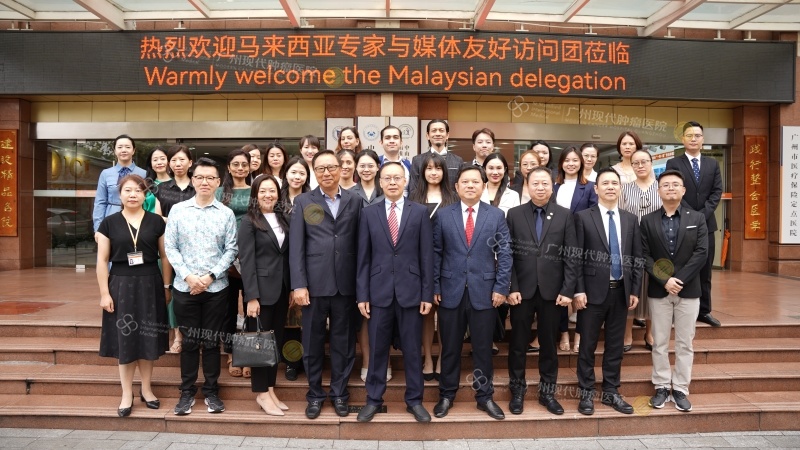
【Hospital leaders and Malaysian medical experts take a group photo with the media delegation】
Wang Huaizhong, President of St. Stamford Modern Cancer Hospital Guangzhou, delivered a welcome speech. He said: The hospital was established in 2005 and began to explore overseas markets in 2006. It has successively established medical assistance centers in Indonesia, Vietnam, Thailand, Malaysia and other Southeast Asian regions. Now, after more than ten years of hard work, the hospital has gained a certain influence in Malaysia. It has close exchanges and cooperation with the Malaysian government and medical institutions, and the two parties have already established a deep friendship. Our unique medical value (18 major technical treatment systems, MDT medical team consultation model, international JCI certified operation management system, unique humanistic care services) has also been recognized and supported by many patients.
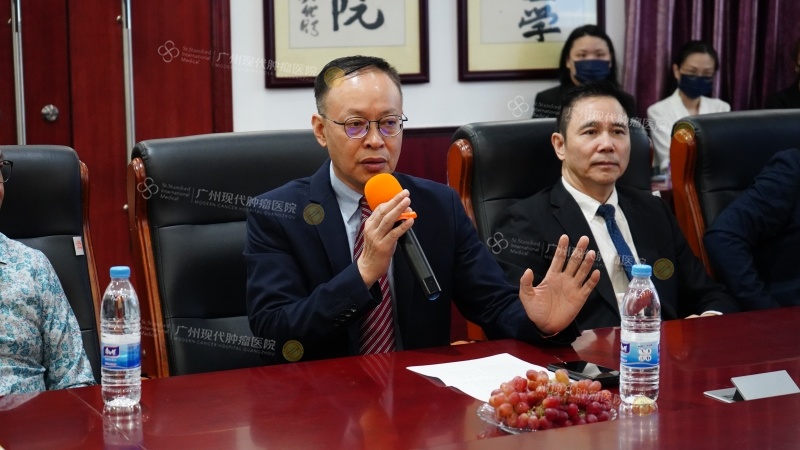
【President Wang Huaizhong delivered a speech】
With the "Belt and Road" integrated oncology training base of the Chinese Anti-Cancer Association settling in our hospital, interactions in the medical field between China and Malaysia will become increasingly frequent. the“Belt and Road”is a national strategy for the common prosperity of China and neighboring countries. In the medical field, we also hope that everyone will actively integrate into this national platform and use this opportunity to promote deeper exchanges and cooperation and jointly promote. The development and application of new concepts and new technologies incancertreatment. We communicate and make progress together with Malaysian doctors in medicine, jointly build a Southeast Asian medical community, jointly respond to the challenge of cancer, and contribute to the global anti-cancer cause.
On-site visits and learning
In the morning, the hospital arranged an on-site visit and in-depth communication with the MDT team.
Firstly, Yang Jinna, director of the hospital office, presided over the meeting and briefly introduced the general situation of the hospital, allowing the visiting delegation to have a preliminary understanding of the hospital's development history, management model, service concept, etc. Immediately after, the delegation visited the hospital's basic departments, remote consultation center, information system, international cancer ward, sky garden, etc. The hospital's warm medical environment, the convenience and practicality of the information system, and the standardized management of the hospital were all praised by the delegation.
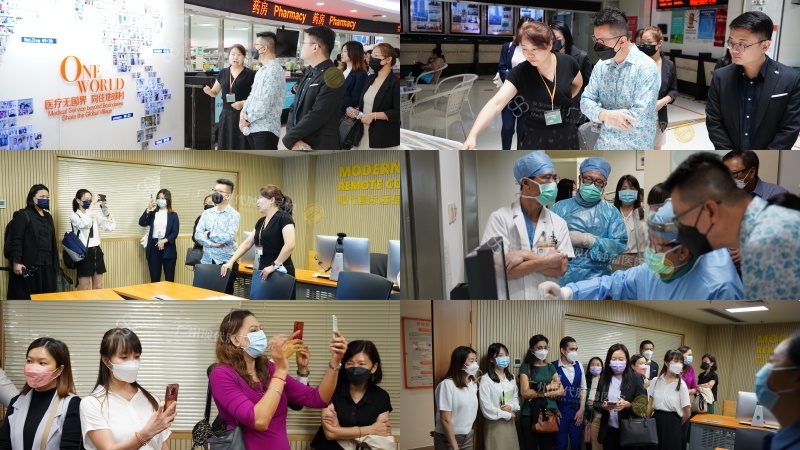
【In-hospital visit】
In-depth exchanges, mutual learning and progress
To deepen the delegation's understanding of the hospital's diagnosis and treatment model, the delegation had in-depth exchanges and communications with the hospital's MDT medical team. The two parties discussed various issues such as patient admissions, admissions procedures, patient diagnosis and treatment.
Peng Xiaochi, chief international oncology expert, said: “The MDT medical team brings together experts from multiple disciplines including oncology, internal medicine, surgery, traditional Chinese medicine, Interventional Department, Medical imaging department, laboratory, biological immunology, and gastroenterology. According to the different conditions of patients, the advantages of various disciplines are brought into full play to formulate the best plan of individualized comprehensive treatment that is scientific, reasonable and standardized personalized comprehensive treatment plan for patients, and ultimately obtain the best therapeutic effect with the best curative effect and the least pain.
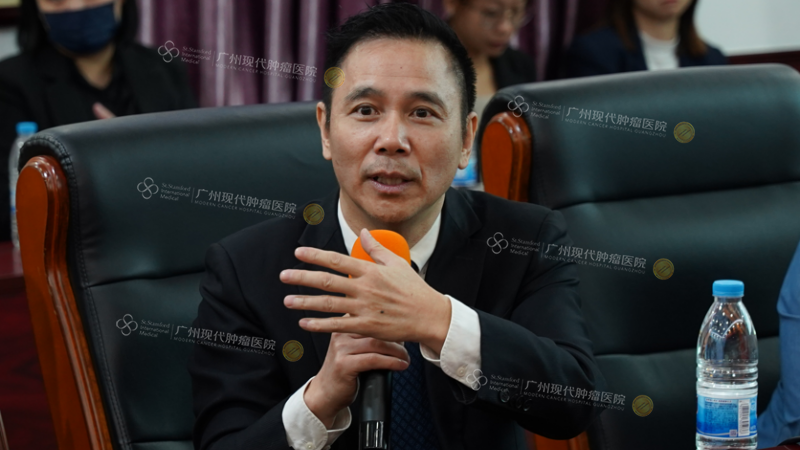
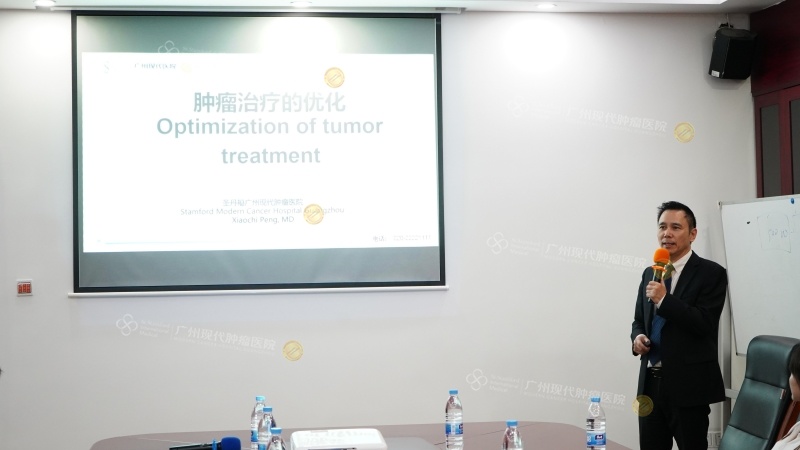
【Peng Xiaochi, chief international oncology expert】
Dai Wenyan, director of the Breast Cancer Prevention and Treatment Center, said: The MDT team diagnosis and treatment model and the establishment of the Breast Cancer Prevention and Treatment Center provide one-stop services for breast cancer patients, provide favorable conditions for breast conservation and breast reconstruction, and preserve the beauty of many women who love beauty breast.
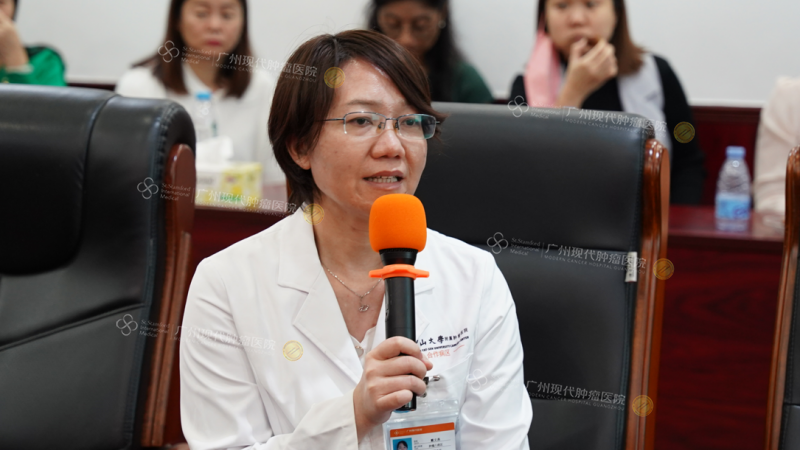
【Prof. Dai Wenyan, director of the Breast Cancer Prevention and Treatment Center】
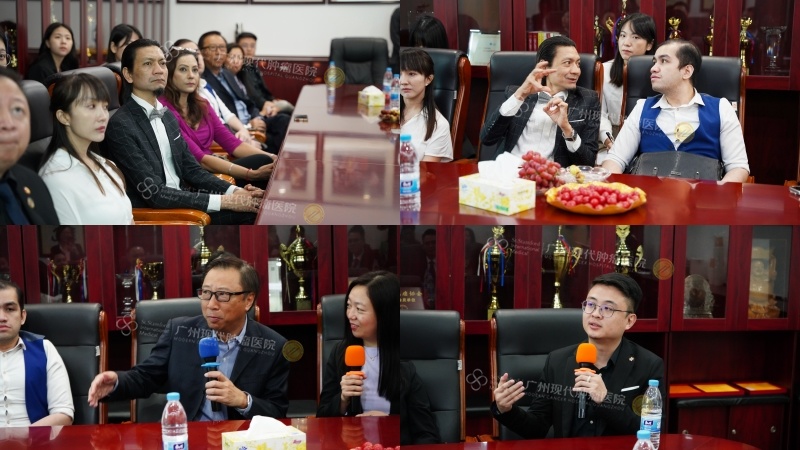
【The Malaysian delegation communicated with the MDT medical team】
Expert representatives from Malaysia expressed the hope that such communication and exchanges can be carried out frequently to learn from each other and make progress together.
Cutting-edge technology, sharing and win-win
The visit was also arranged for a lecture by International Chief Oncologist Peng Xiaochi, who shared "Optimization of Tumor Treatment" with the delegation, The hospital's 18 minimally invasive tumor technologies were introduced, with detailed explanations of cutting-edge minimally invasive treatments such as interventional, CombiKnife and drug-carrying microspheres.Combined with vivid patient cases, he said: the use of minimally invasive technology had once treated a patient with stage IV breast cancer, the local doctors predicted that there were only two months to live, but after receiving minimally invasive technology in the hospital, more than ten years have passed, and she is still living a healthy life.The delegation was deeply impressed, and there was occasional applause.
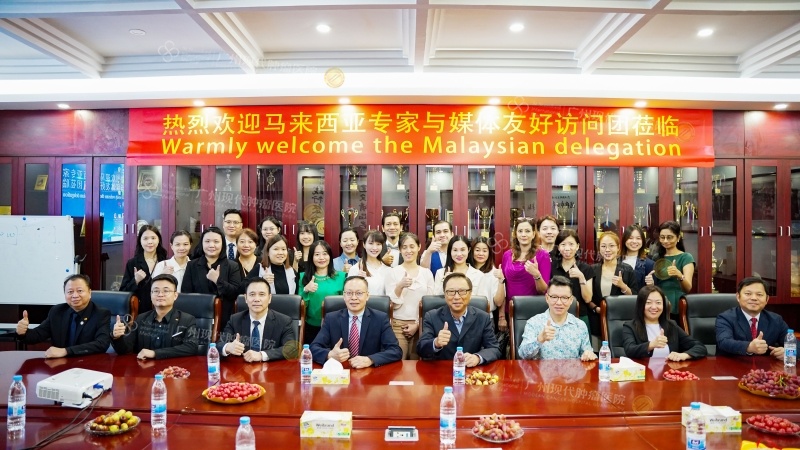
A representative of the visiting delegation said: "The introduction of these technologies to Malaysia will definitely benefit local patients. As a medical worker, it is my obligation to promote these international cutting-edgecancertechnologies and bring high-qualitycancertreatment resources to the Malaysian."
Visiting and caring for patients
Afterwards, the delegation paid tribute to the patients in the hospital, sent them greetings and fruit baskets, cared about their treatment and physical condition, and wished them a speedy recovery.
Patient Su*sheng was deeply touched, he said, "I am very happy, thank you for your care, and thank you very much for St. Stamford Modern Cancer Hospital Guangzhou, the medical staff here are very professional, I am in the advanced stage of the tumor, the condition is very serious, through the minimally invasive treatment the body has been gradually restored to health. Thanks for the help and care of the medical staff."
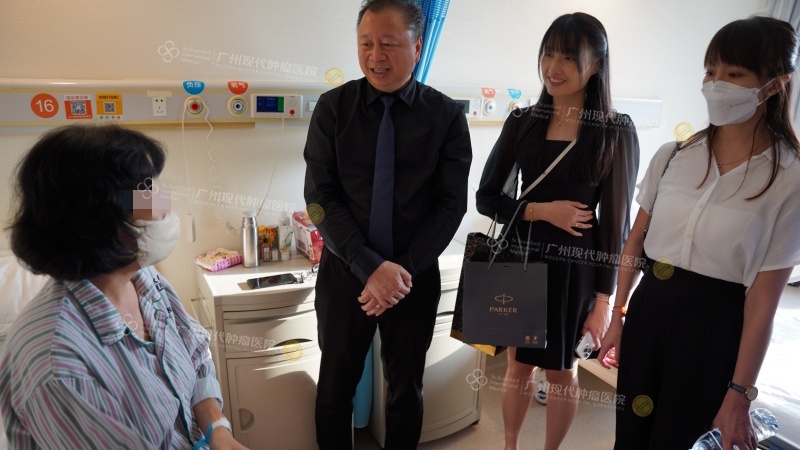
During this visit, the Malaysian delegation highly praised the technology and services of St. Stamford Modern Cancer Hospital Guangzhou. The delegation said: They gained a lot from this visit. We saw the high-quality life of patients with advanced cancer after treatment, which gave other patients a glimpse of a cure. Through this exchange and study, we learned a lot of new theories and new technologies, which have a profound impact on the medical field in Malaysia. We hope that both parties can establish a deeper and longer-term cooperative relationship tohelp each other, and continuously improve medical standards and service capabilities, provide better medical services to cancer patients and contribute to the anti-cancer cause.
*Surgery, in addition to the appropriate chemotherapy and radiotherapy, are effective in treating early cancer, but certain patients in late stage of cancer may not be tolerate surgery well as they can be relatively weak. A combination of carefully planned minimally invasive therapy, chemotherapy or radiotherapy can effectively reduce the side effects and discomfort of treatment and may help patient get better efficacy.













 viber
viber